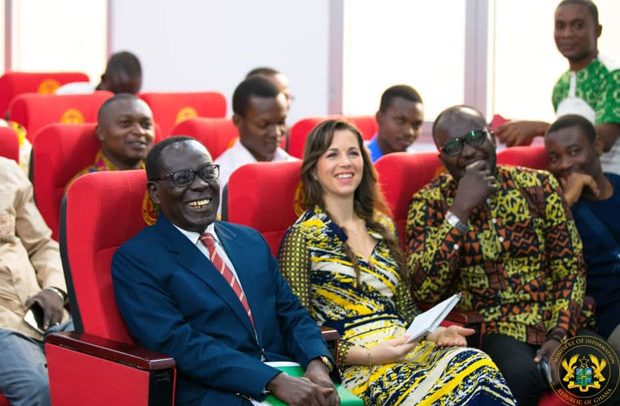A cross section of dignitaries at the press briefing
The Government of Ghana has announced that it will be joining the Global Plastic Action Partnership (GPAP), a new initiative created by a coalition of influential public and private leaders to fast-track plastic pollution action around the world.
GPAP is hosted at the World Economic Forum annually.
Advisor to the Minister of Environment, Science, Technology and Innovation, Oliver Boachie, at a press briefing held at the Ministry of Information on Wednesday, September 18, 2019, noted that Ghana, under the leadership of the sector ministry, was in the process of adopting a National Plastic Management Policy that will leverage the comprehensive management of plastics to drive sustainable development, green job creation, and environmental protection.
He noted that Ghana has been selected as a natural first engagement in Africa for the Global Plastics Action Partnership.
“As one of the fastest growing economies in the world and a leading political and economic force in Africa, Ghana has the potential to catalyze a new era of plastic action across the continent,” he said.
At the country level, President Akufo-Addo is expected to launch the Ghana National Plastic Action Partnership on October 1, 2019.
The Action Partnership will be launched in close coordination with the United Nations Development Programme (UNDP’s) ‘Waste’ Recovery Platform, which will promote sustainable waste recovery in Ghana through connecting stakeholders across the waste management chain, he said.
He added that the Ghana National Plastic Action Partnership and the UNDP ‘Waste’ Recovery Platform will support the existing work being carried out by the government of Ghana, as well as successful initiatives being led by entrepreneurs and civil society actors at the local level, to accelerate the reduction of plastic waste and pollution in Ghana.
About the Global Plastic Action Partnership
The Global Plastic Action Partnership envisions a world free of plastic waste and pollution.
BY Melvin Tarlue


